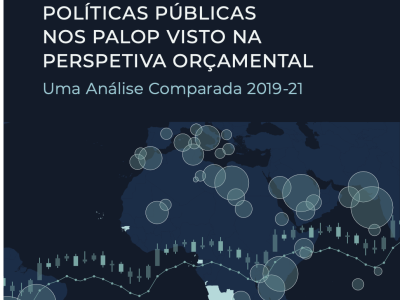This Parliamentary Primer begins by discussing the question of what leadership in crisis entails. It argues that effective leadership involves dialogue and deliberation leading up to decision-making, and that democratic parliaments are the legitimate forum for such dialogue and decision-making, in both planning for and responding to crisis. Next, the Primer considers the complex and sometimes conflicting requirements of parliaments confronted with the 2019–2020 coronavirus pandemic, underlining that, however parliaments choose to carry out their functions during crisis, they cannot abandon their core constitutional functions of legislation, oversight of the executive and representation of citizens. A summary is provided of different steps taken by parliaments during the early phase of the pandemic. The Primer goes on to discuss how parliaments have played an essential function in the policy debate during the crises, particularly in the discussion and debate about the types of economic measures that should be put in place to avoid economic collapse and personal hardship, while restrictive measures were in place that choked off economic activity. Examples are provided of how parliaments in several countries improved government proposals to ensure wider coverage and, particularly, support to vulnerable citizens. The Primer next considers how parliaments dealt with the issue of providing government with special powers during the crisis, in order to respond to emergency situations and to enforce essential public health measures. It shows that some parliaments effectively scrutinized and amended emergency powers legislation to ensure that it was limited in time and scope, and that the use of special powers would be subject to proper parliamentary oversight. Unfortunately, in some other countries, parliament was unable to put in place such limitations and oversight. The near impossibility of meeting in large plenary sessions while spread of the coronavirus was rampant imposed a need for innovation, particularly in using technology to enable virtual meetings. The Primer looks at a number of different models and approaches, highlighting the remarkable speed and innovativeness of many parliaments in making such systems work at extremely short notice. Some approaches used even incorporated the possibility for citizen participation, hinting at the positive potential of these new approaches, which could transform parliamentary work in the future, even after the pandemic emergency. While shifting operations rapidly to enable safer functioning is a challenge for any parliament, the implementation of virtual solutions, such as online meetings, is a particular challenge for many parliaments in developing countries and emerging democracies. These countries often do not have advanced e-parliament technologies, or the resources to quickly acquire the hardware and software to enable those solutions. Innovations are being shared already, through forums such as the Inter-Parliamentary Union’s (IPU) compendium of responses to the pandemic (IPU 2020a). Peer-to-peer support can be particularly helpful in enabling parliaments in developing countries to quickly adopt tested solutions from elsewhere. INTER PARES will prioritize such sharing and learning approaches to parliamentary crisis preparedness. Some parliaments have been hampered in their ability to implement virtual solutions by regulatory, legislative and even constitutional provisions. While regulations and even laws can often be amended quickly, constitutional provisions requiring the physical presence of parliamentarians are typically difficult to amend, especially where amendment requires a referendum that cannot easily be organized during a pandemic. Parliaments will need to study and initiate constitutional reforms to enable their continued functioning through virtual means during a crisis, while ensuring adequate process safeguards. The Primer goes on to look at parliaments and their role in disaster planning. The pandemic has demonstrated that, in general, planning for this type of disaster was inadequate in all governance fields, across the world. Further, parliaments often do not have a defined and active role in disaster planning oversight. It will be necessary both for states to improve disaster planning, particularly to take into account the danger of epidemiological crisis, and to assure proper parliamentary oversight, which can help to identify and resolve planning shortfalls before they are exposed in the middle of a crisis. The example of countries in the Pacific region, which have long had to plan for disasters such as cyclones, tsunamis and earthquakes, is highlighted as a model that other countries should consider. The pandemic highlights the precarity of human existence, and the need to consider big questions about the nature of modern civilization—for example, the impacts both on the climate and on human health of factors such as the deep global integration of economies and societies, as well as the sustainability of an ever-growing global population dependent on accelerated industrial exploitation of natural resources. Parliaments, in which all shades of opinion and interest are represented, are the best forum for such a dialogue in every country—a dialogue.
Parliaments and Crisis: Challenges and Innovations that should engage both experts and citizens in finding common understandings and solutions at the national level, and feed into the international decisionmaking required to coordinate effective planning for, and responses to, diverse crises and disasters. The Primer concludes by summarizing the key findings and recommending future directions for parliamentary engagement in planning for, and dealing with, crisis.





